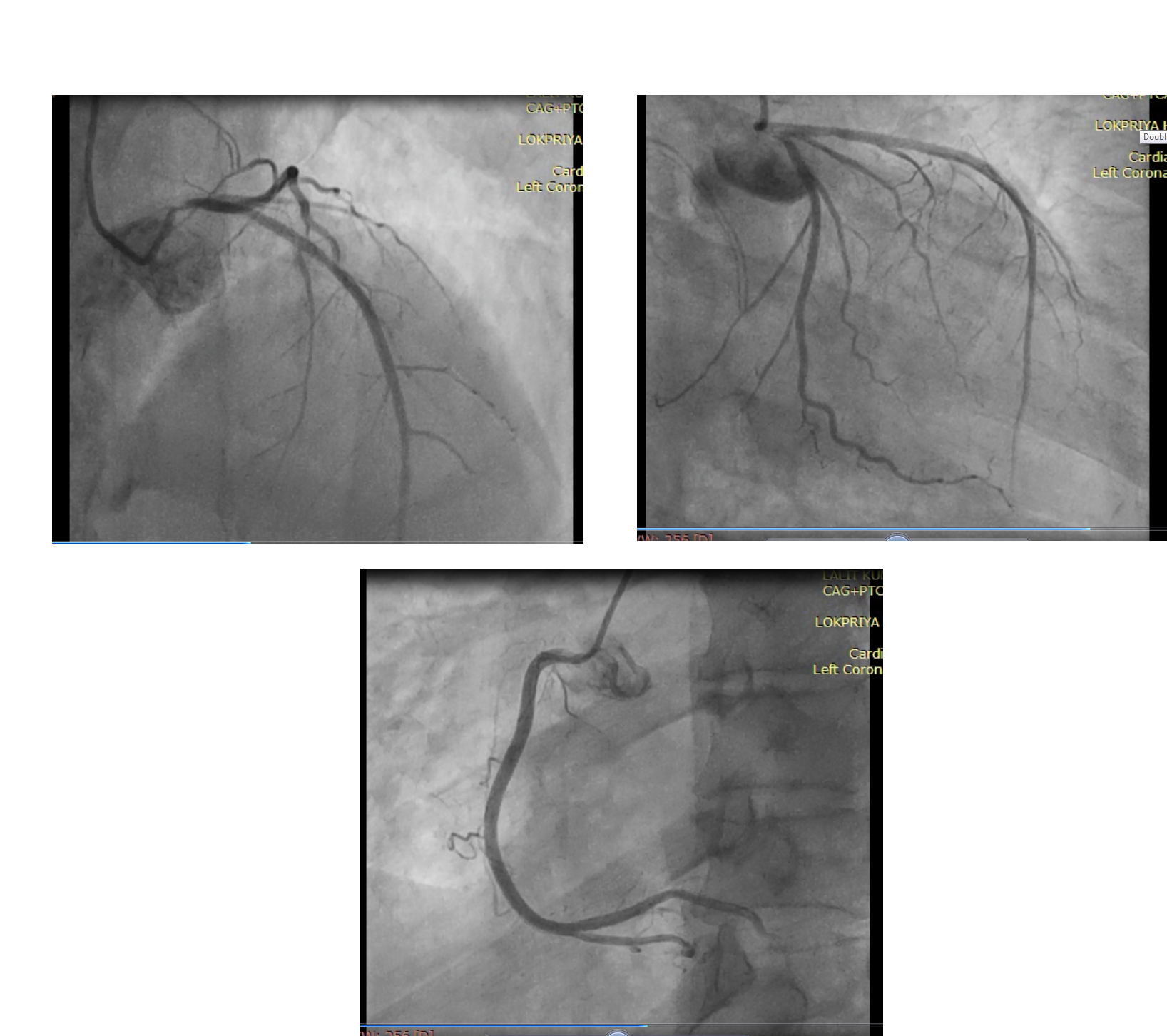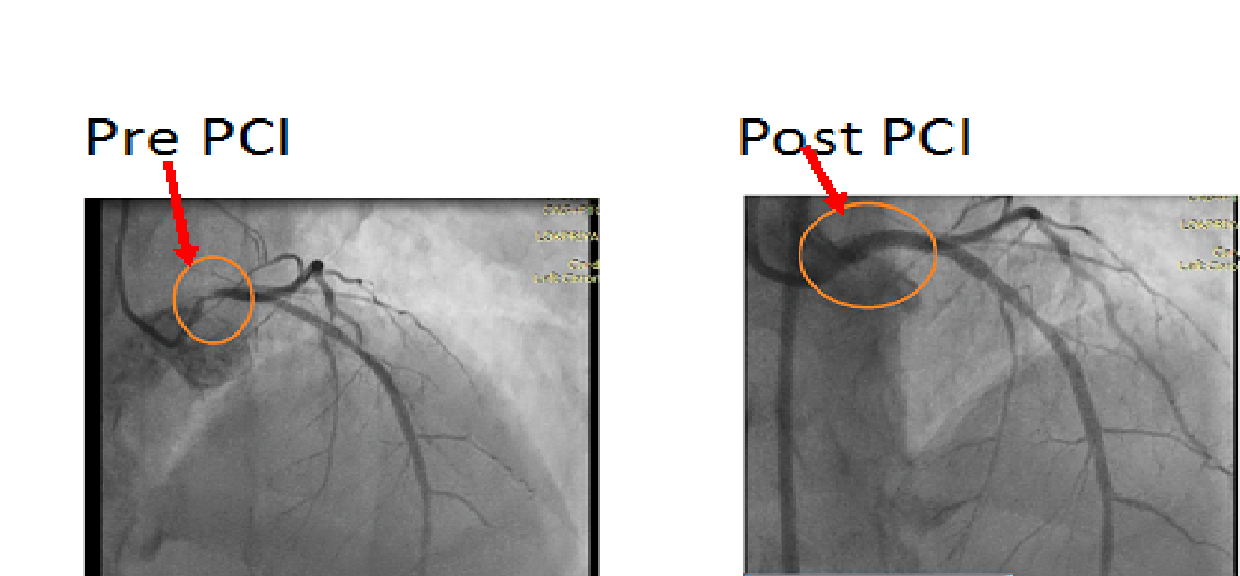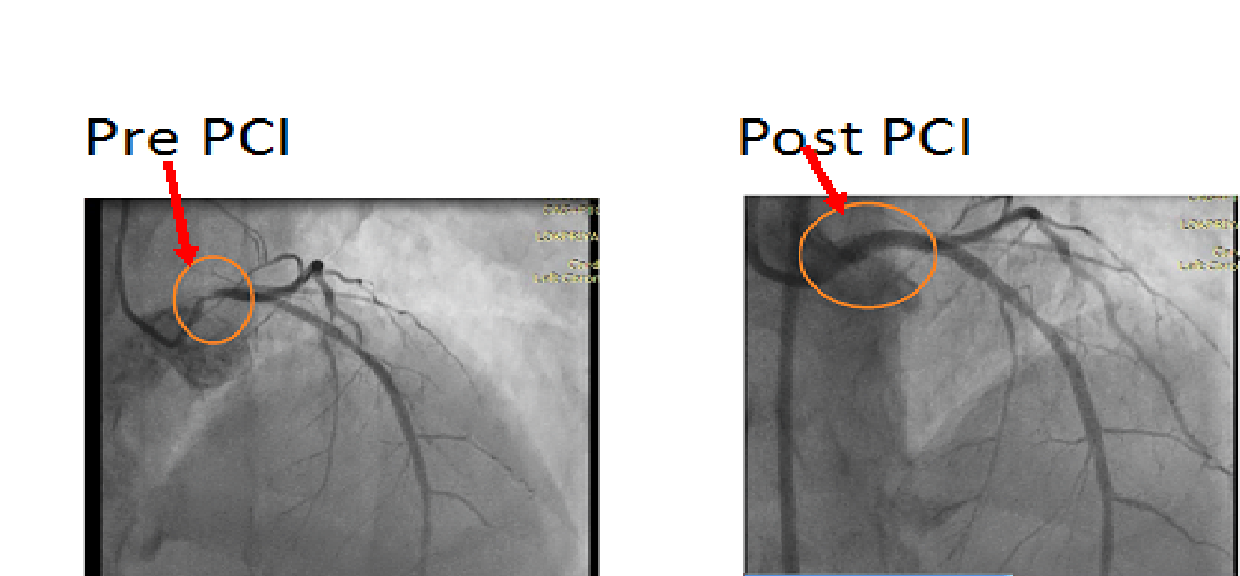Lots of interesting abstracts and cases were submitted for TCTAP & AP VALVES 2020 Virtual. Below are accepted ones after thoroughly reviewed by our official reviewers. Don¡¯t miss the opportunity to explore your knowledge and interact with authors as well as virtual participants by sharing your opinion!
* The E-Science Station is well-optimized for PC.
We highly recommend you use a desktop computer or laptop to browse E-posters.
CASE20200923_002
| High-Risk Intervention (diabetes, heart failure, renal failure, shock, etc) - High-Risk Intervention | |
| Primary Angioplasty of Left Main with Cardiogenic Shock & Pulmonary Oedema with IABP Support | |
| Hariom Tyagi1 | |
| Lokpriya Hospital, India1, | |
|
[Clinical Information]
- Patient initials or identifier number:
L K
-Relevant clinical history and physical exam:
This45 year old gentleman- a known case of old AWMI (post PTCA to LAD in 2011)presented to us with severe retrosternal chest pain &dyspnoea a/w sweating for last 3 hours. The patient wasin Killip Class IV with cardiogenic shockand recurrent VT. vECG: LBBB, Diffuse ST depressionin all leads except aVR & V1 & ST elevationin I,aVL & aVR v2 DEcho suggestive of severe LV Systolic Dysfunction( LVEF-20%),SevereMR, Moderate TR ,Moderate PAH -Relevant test results prior to catheterization:
The patient was taken for Urgent CAG withintent to primary angioplasty. Coronary angiography suggested critical LM stenosis with significant ISR of LADstent in proximal part.  - Relevant catheterization findings:
Patient was put on Intra-aortic balloonpump. JL 3.5- 7F guiding catheter was engaged inleft cusp near LM ostium After crossing the lesion & serial predilatation with semicompliant balloons, 4.0x 23 Xience Prime DES was implanted from LM to LAD covering the ISRsegment. Post dilatation with proximal optimization was done using4.5x 8 mm NC sprinter balloon |
|
|
[Interventional Management]
- Procedural step:
After explaining the high risk & takingconsent of death on table IABP support (34cc linear balloon) was put through leftfemoral artery.
 - Case Summary:
Significant (defined as a greater than 50 percentangiographic narrowing) left main coronaryartery disease (LMCAD) is found in 4 to 6 percent ofall patients who undergo coronary arteriography. It is associated with multivessel coronary artery disease about 70 percent of the time
|
|